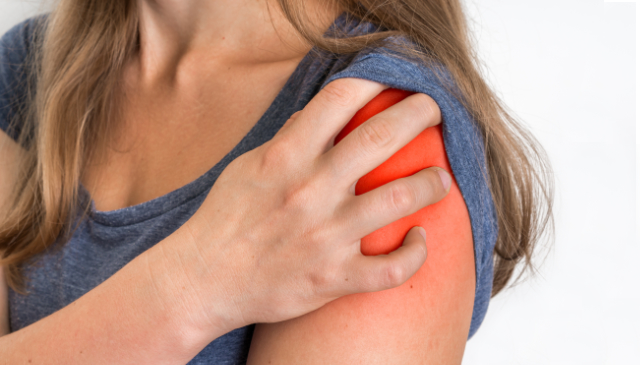News
Therapeutic Exercise Programs Can Help with Rotator Cuff Injuries

Rotator cuff injuries are a common cause of shoulder pain that can significantly impact daily life. Examples include conditions like rotator cuff tendinitis, rotator cuff tears, and shoulder impingement, which often result from overuse of the shoulder or a single traumatic incident. These injuries lead to pain, restricted shoulder movement, and disruptions in daily activities, including work. For patients suffering from rotator cuff injuries, it is essential to find an effective treatment that reduces pain and restores function.
Manual therapy is a hands–on intervention physical therapists use to mobilize and manipulate joints, muscles, and surrounding tissues. It may be used alone, but is most commonly combined with other interventions in a physical therapy plan to treat musculoskeletal conditions like rotator cuff injuries. When applied appropriately, research shows that manual therapy helps to improve mobility, reduce pain, and enhance overall function.
The Power of Combining Manual Therapy with Therapeutic Exercise
A comprehensive study called a systematic review and meta–analysis reviewed 24 randomized clinical trials involving more than 1,100 patients with rotator cuff injuries. The results demonstrated that adding manual therapy to therapeutic exercise provided superior pain relief and functional improvements compared to exercise alone. In fact, patients experienced better shoulder movement, reduced pain, and overall improvements in daily function when both interventions were used together.
Why Manual Therapy is Effective for Rotator Cuff Injuries
Manual therapy addresses rotator cuff injuries by correcting muscle imbalances, reducing tension in the muscles surrounding the shoulder, and helping patients regain their range of motion. When combined with personalized exercises, manual therapy optimizes healing by allowing the muscles and joints to recover more effectively. Combining these interventions also prevents the risk of chronic pain and long–term disability, which can occur if rotator cuff injuries are left untreated.
Manual Therapy Combined with Multimodal Physical Therapy
In the same study, patients who received manual therapy as part of a multimodal physical therapy program experienced the most significant reductions in pain and improvements in shoulder function. Multimodal physical therapy indicates that a variety of interventions are used the patient's treatment program, such as strengthening and stretching exercises, functional training, patient education, and sometimes passive modalities like ice, heat, and electrical stimulation. This highlights the importance of taking an integrated approach for treating rotator cuff injuries.
Reach Out Today if Your Shoulder is Bothering You
As this study shows, manual therapy combined with exercise or multimodal physical therapy is likely to lead to a successful recovery. This approach not only addresses pain but also helps restore function and allows patients to return to their normal routines faster. So, if you or someone you know is dealing with shoulder pain from a rotator cuff injury, we strongly recommend seeing a physical therapist who utilizes manual therapy. Contact Us For More Information about how manual therapy can improve your shoulder health or to schedule an appointment today.
For additional details on the featured study, check out the full article here.
November 13, 2024
Disclaimer:
The information in the articles, posts, and newsfeed is intended for informational and educational purposes only and in no way should be taken to be the provision or practice of physical therapy, medical, or professional healthcare advice or services. The information should not be considered complete or exhaustive and should not be used for diagnostic or treatment purposes without first consulting with your physical therapist, occupational therapist, physician or other healthcare provider. The owners of this website accept no responsibility for the misuse of information contained within this website.


